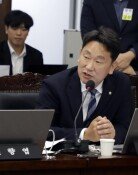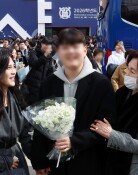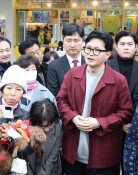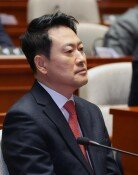[Editorial] Unions Anti-Globalization Education Plan Does Korea More Harm Than Good
[Editorial] Unions Anti-Globalization Education Plan Does Korea More Harm Than Good
Posted October. 28, 2005 07:38,
Ahead of the APEC Summit in Busan slated for next month, the Busan chapter of the Korean Teachers and Education Workers Union (KTEWU) announced its teaching plan titled, The Truth of APEC. The plan, a 17-minutes-long video clip, claims that APEC is an organization solely for corporations and those who are rich, and that APEC policies have a negative impact on ordinary people.
It is not too much to say that Korea is living on exports. Koreas territory size is a mere 109th largest in the world, but its trading volume stands at 12th and its GDP created by exports is the 10th largest in the world. All these achievements are the results of its efforts to expand trade with the world, staking the fate of the country and its people on it. Export contributed to 73.1 percent of national economic growth last year, and the 20 member economies of the APEC accounts for 70.3 percent of Koreas total trade and 63.7 percent of Koreas foreign investment.
The Busan APEC Summit is a golden opportunity that Korea cannot afford to miss. It can pave the way for Korean companies to further advance on overseas markets and promote Busan to the world as the logistics hub of northeast Asia. APEC is, according to the Korean government, a very important forum that will promote national interests by promoting economic and trade cooperation in the region, and that will address pending issues that affect peoples lives including responses to terrorism and improving healthcare.
What good can the KTEWU do for children, parents, and Korean people by imbuing children with distorted, leftist views of the APEC? Injecting anti-globalization views to students by teaching them globalization is aimed at making money by selling whatever can be sold is in no way conducive to the education of children who will someday compete in a globalized world as individuals and as part of a nation. Without a liberal market economy and the expansion of trade, KTEWU teachers would not have been able to enjoy the prosperous life they have today.
José Manuel Barroso, president of European Commission, recently stated Europe will be reduced to nothing if it fails to meet the challenges of globalization. He, a former communist, criticized populist opposition of the market economy and free trade, and even said, We are going to be ruined if we teach our children to resist globalization.
The Busan Office of Education has directed each school not to damage the impartiality of education, but it is not enough. The Korean government should clearly state its position about the KTEWU, which brainwashes students to become dupes of anti-globalization by anti-APEC class. The Roh Moo-hyun administration must take the lions share of blame for the KTEWUs freer and freer pushing of its educational agenda.







